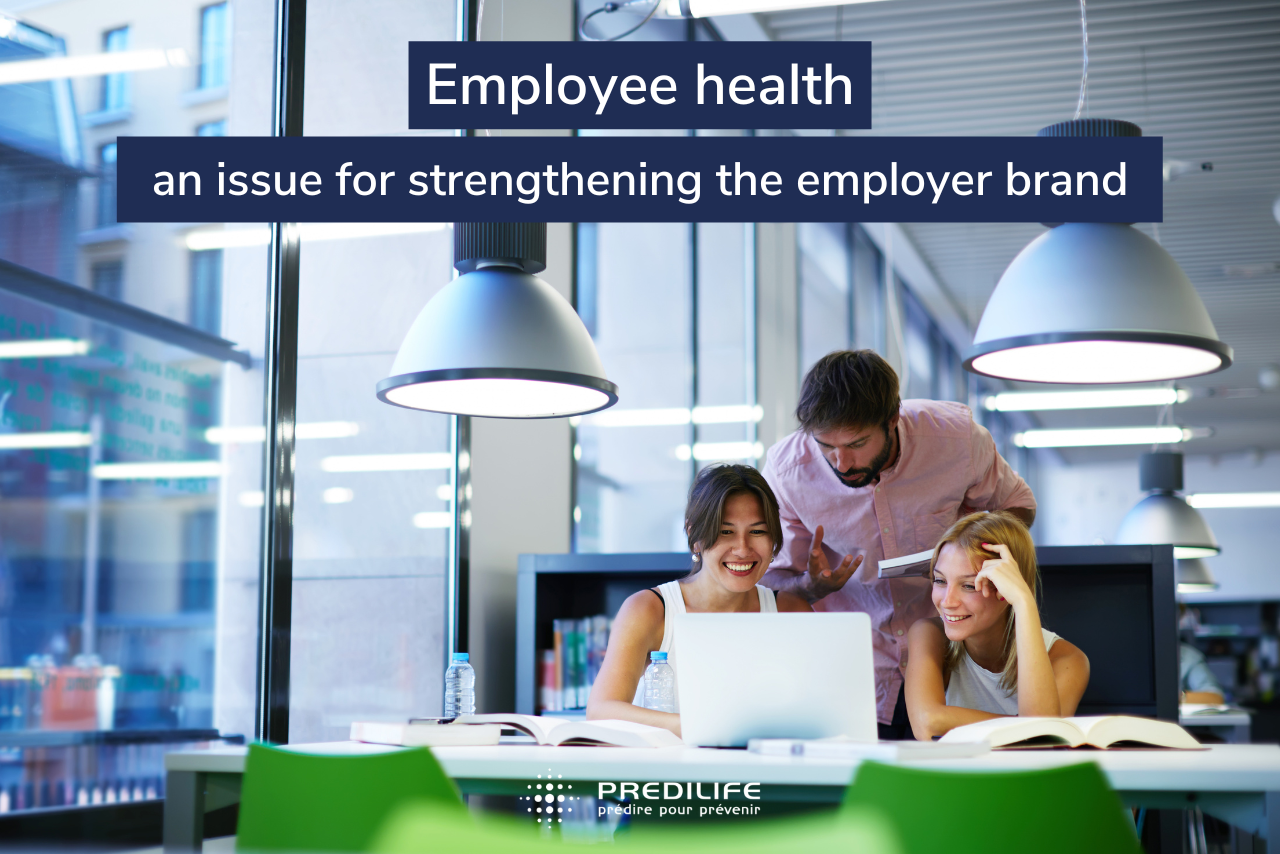Employee health, an issue for strengthening the employer brand

Employee health, an issue for strengthening the employer brand
The law of August 2, 2021 strengthened employers’ obligations in terms of health at work by not only focusing on occupational risks but by building bridges between the company and the health of employees in general. In particular, this involves strengthening prevention.
This new regulation responds to a strong expectation of employees who want involvement and support from their company in terms of health. It is also an opportunity for employers to implement an effective and relevant health policy and thus strengthen the attractiveness of their employer brand.
Strong expectations of employees vis-à-vis their employer
Before the health crisis, employees already placed their company’s societal commitments in the criteria for choosing a position. This trend has been reinforced with Covid-19 and its management by companies. Health has become a major concern and a large number of employees want their employer to get involved. It is also a successful bet for the majority of them since according to a Havas Paris People study, 7 out of 10 employees felt that their company protected and supported them during this health crisis.
It is likely that this dynamic in favor of the company’s involvement in the health of its employees will continue, once the health crisis has passed. It is therefore important for employers and human resources managers to draw the outlines of a relevant and effective health policy now for their employees but also for their future collaborators.
Moreover, 95% of staff representatives believe that it is the role of the company to take into account the health of its employees. Moreover, 83% of them would like the employer to take a more proactive approach in supporting employees in their health-related initiative.
Strengthening the employer brand
Adopting a health policy for its employees offers several advantages for the employer:
- Improved employee productivity: the impact of health on concentration and productivity is clear to 95% of employers;
- a reduction in absenteeism: this costs 108 billion euros per year, i.e. an average annual cost of 4,059 euros per employee;
- strengthening the employer brand.
As a reminder, the employer brand can be defined as “all brand image issues related to the management of human resources and the recruitment of a company” according to Pôle Emploi. This notion takes into account changes in the labor market. Many profiles are in a strong position with employers and can choose between several positions and offers. Companies must therefore be attractive and this requires a strong and positive employer brand.
Implementing an ambitious health policy within your company has an impact on the employer brand, both in terms of the attractiveness of new profiles and the loyalty of current employees. However, this statement must be qualified according to the size of the company. It would seem that the implementation of a health policy is more a lever of loyalty than of attractiveness in companies with less than 1,000 employees. On the other hand, in larger structures, the health policy is an attractive factor for 65% of staff representatives.
The employer’s leeway
The establishment of a health policy within the company is therefore a win-win system for the employer and the employees. But this health policy must still be efficient and not be limited to declarations of intent. The employer will be judged on his actions and on the implications of his health policy on the daily lives of his employees.
It must therefore put in place concrete measures, visible to all and relevant in terms of health. This can involve the dissemination of awareness messages, the organization of information and prevention conferences. But the employer can go even further and engage proactively in the health of its employees by allowing them to benefit, for example, from prevention check-ups: Predictive check-up for breast cancer or predictive multi-pathology check-up.
The latter make it possible to determine the employee’s risk profile in the face of serious pathologies such as breast cancer, lung cancer, skin cancer, prostate cancer, colorectal cancer or even cardiovascular diseases. They are based on data collected during a teleconsultation, a medical questionnaire and biological and genetic analyses. Once the employee’s risk profile has been determined, he or she will benefit from personalized monitoring and advice on reducing risk factors. Of course, all this information is confidential and is never communicated to the employer.
If you want to know more, do not hesitate to contact us.